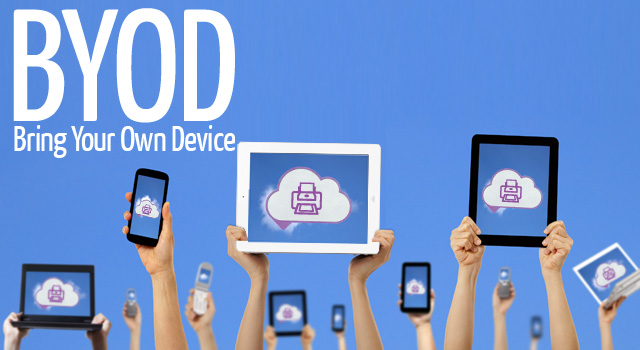79% of professionals do business on personal devices
As employees increasingly demand a more mobile and social workplace, the pressure is on for enterprises to deliver the same technology experience employees have in their personal lives to their work lives.
 With an emphasis on intuitive collaboration and enhanced productivity, initiatives such as BYOD encourage this sort of working behavior. From a security perspective however, it also heightens the level of risk in a company.
With an emphasis on intuitive collaboration and enhanced productivity, initiatives such as BYOD encourage this sort of working behavior. From a security perspective however, it also heightens the level of risk in a company.
In light of the changes to how we work, Intel Security and MSI Research conducted a global study which revealed the working habits of 2,500 professionals around the world, and their attitudes towards online data protection. “For many people work happens whenever and wherever, with whichever device is handy,” says Raj Samani, EMEA Chief Technology Officer at Intel Security.
“However, just by checking work emails on a personal laptop, for example, an employee allows corporate data to wander outside the network, potentially unprotected. Enterprises need clearly defined policies on bring your own devices, outlining which applications and websites are permitted as well as providing advice on where not to access corporate data. By doing so, companies can reap the rewards of enhanced productivity and collaboration as well as protecting the company.”
The research found that:
- More than three quarters of the respondents (78%) use their personal devices for work-related activities
- An even greater number (79%) stated that they conduct personal online activities on company-issued devices
- 40% of employees work from home or “wherever”
- 65% of respondents feel IT is responsible for protecting personal data on work devices
- 77% of respondents feel ‘very confident’ or ‘confident’ their employer is taking necessary steps to protect all important data
- 61% of activity undertaken at work is personal, confidential or private
- 35% of respondents logged onto public Wi-Fi using their company laptops.

With over a third of professionals surveyed admitting to logging on to public Wi-Fi on a company laptop, enterprises and employees need to be better educated on BYOD in order to stay safe in an increasingly social working environment.
These five points are what every enterprise needs to know about BYOD:
1. The possibilities are endless: By 2017, Gartner predicts that half of employers will require employees to supply their own device for work purposes. Businesses have eagerly embraced BYOD for many reasons. Not only can BYOD empower your workforce, it can also be economically advantageous as the consumerisation of IT is gaining ground in smaller companies on a budget. BYOD also drives innovation in the development of new business applications
2. But not everyone is a fan: BYOD can be a security nightmare for IT departments. IT perceives that there is a potential for a certain amount of chaos, disorder, data loss, and security risk when it comes to permitting users to bring their own consumer devices into the corporate network
3. Don’t worry, be ‘appy: Most mobile users don’t usually concern themselves with managing the security of their devices. They are too busy communicating and doing business. Yet just count the vast number of apps available on your phone. Not all of them are necessarily built with airtight security, so they are an easy entry point for malware and data-stealing exploits
4. Cloud without a silver lining: By placing corporate documents into cloud-based Dropbox accounts, forwarding internal email to webmail, or using smartphones and tablets in unprotected mobile Wi-Fi hotspots, users can put data at risk
5. Staying safe: You need a way to monitor and regulate how users transfer and use valuable corporate data over these devices and safeguard data if the device is lost or stolen. Ideally, your endpoint protection, preferably an integrated suite of various tools includes a unified management hub.
Axarhöfði 14,
110 Reykjavik, Iceland














